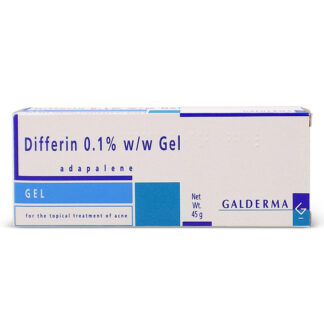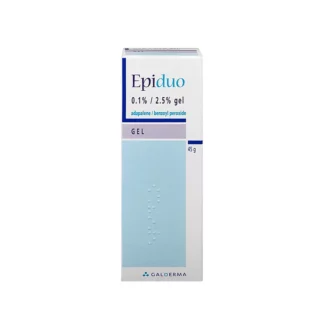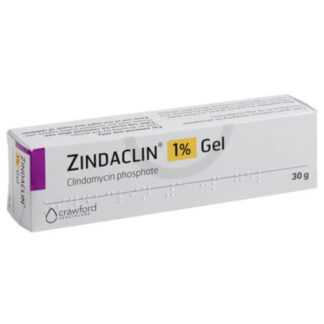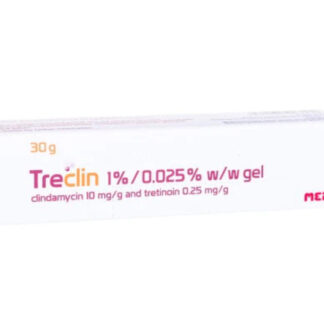Acne
Acne is commonly associated with the fluctuations of hormones that most teenagers experience. However, there is a good number of adults that still experience acne as well. In the United States, about 17 million have acne, which makes it the top skin condition among adults and children. It is essential that your type of acne is successfully identified in order for treatment to be successful.
Acne is commonly associated with the fluctuations of hormones that most teenagers experience. However, there is a good number of adults that still experience acne as well. In the United States, about 17 million have acne, which makes it the top skin condition among adults and children. It is essential that your type of acne is successfully identified in order for treatment to be successful.
Benefits Of Using Tru Medical Online Treatment Service
Shipped To You
Select your shipping address and choose from one of our available shipping options including same-day shipping.
Discreet and Secure Service
Your treatment will be delivered in a discreet, unlabeled and unmarked package, ensuring complete discretion.
Online Consultation
Make sure your selected treatment is right for you by consulting with our experts online.
Available Treatments

Adapalene (Differin) Gel
- Treats moderate to severe acne
- Contains a retinoid
- Often tolerated better than tretinoin
- Proven effectiveness

Adapalene and benzoyl peroxide (Epiduo)
- Combination product
- Effective acne treatment
- Topical gel for easy application
- Once daily
- Antibiotic free

Clindamycin (Zindaclin) gel
- Antibiotic topical gel
- Easy once daily application
- Decreases redness and inflammation

Clindamycin and Tretinoin (Treclin)
- Effective acne treatment
- Double action
- Easy application
- Contains tretinoin
Benefits Of Using Tru Medical Online Treatment Service
Shipped To You
Select your shipping address and choose from one of our available shipping options including same-day shipping.
Discreet and Secure Service
Your treatment will be delivered in a discreet, unlabeled and unmarked package, ensuring complete discretion.
Online Consultation
Make sure your selected treatment is right for you by consulting with our experts online.
How Does The Online Treatment Service Work?
Consultation
Fill out our online questionnaire our experts will examine.
Checkout
If you are eligible for the treatment, you will be sent to the checkout page.
Start Your Treatment
The selected treatment will be delivered to your address.
Learn more about acne types & treatment
What are the causes of acne?
It’s quite common for acne to be caused by clogged pores. This can be due to:
- Excess production of sebum
- Hormones
- Bacteria
- Ingrown hairs
- Dead skin cells
What are the different types?
When it comes to describing different types of acne, it’s quite common for most people to refer to them as “breakouts”. However, this isn’t always accurate. After all, there are different types of acne and not all of them spread or break out across the skin.
Acne can be both inflammatory or non-inflammatory. Within these two types, there are several subtypes which people may develop. These are:
- Whiteheads
- Blackheads
- Pustules
- Papules
- Cysts
- Nodules
One can also have multiple acne types at once. There are some people with acne that’s so severe they have to pay their dermatologist a visit in order to keep it under control. If your acne is starting to cause you worry, it is always best to look around and find a reliable and experienced dermatologist who can assist you.
What is non-inflammatory acne?
Acne belonging to this type includes whiteheads and blackheads. These types do not usually cause any swelling and most of the time, they tend to positively respond to OTC or over the counter treatments.
Salicylic acid is a commonly known acne treatment and while it may be marketed as a form of treatment for all kinds of acne, it is most effective when used on non-inflammatory ones. It exfoliates the skin naturally, allowing it to remove dead skin cells which are often the cause of whiteheads and blackheads. If you have non-inflammatory acne, make sure to check if salicylic acid is one of the ingredients in your toners, moisturizers and cleansers.
Blackheads or open comedones
Blackheads develop when the skin pores are clogged. This could be due to dead skin cells or sebum. However, the topmost portion of the pore remains open even when the rest has been clogged. This is why blackheads have that typical black color when viewed on the surface.
Whiteheads or closed comedones
Whiteheads also form due to dead skin cells and sebum that clog the pores. Compared to blackheads, however, the top portion of the pores is closed. As a result, whiteheads appear as tiny bumps that protrude from the skin’s surface.
It is more challenging to treat whiteheads due to the pores being closed. Products that have salicylic acid in them can be quite helpful. However, topical retinoids seem to be most effective at treating comedonal acne. Currently, products like adapalene (Differin) can be accessed over the counter for this purpose. In the event that this treatment does not produce your desired results, it may be better to consider getting topical retinoids. You have to get a dermatologist’s prescription in this case.
What is inflammatory acne?
Swollen and red pimples are considered inflammatory acne.
While dead skin cells and sebum can still cause inflammatory acne, the condition may also be due to bacteria which will cause the pores to get clogged. The presence of bacteria can also cause the surface beneath the skin to get infected. As a result, painful acne spots can develop and getting them clear out can be quite a challenge.
To help with the swelling, you can choose products that have benzoyl peroxide as one of their ingredients. This is also effective at removing any excess oil. On top of the benzoyl peroxide, it is also possible for your dermatologist to prescribe a topical or oral antibiotic to manage and treat inflammatory acne. In the case of inflammatory pustules and papules, topical retinoids are crucial a part of the treatment plan.
Papules
Papules develop when the walls around the pores break down as a result of severe inflammation. The ores will become clogged and hard, and they can be sensitive to the touch. Papules are also characterized by the pink skin surrounding it.
Pustules
They can also develop when the walls surrounding the pores break down. Their main difference between them and papules is that they tend to be filled with pus. The bumps tend to protrude from the skin surface and they appear red with a white or yellowish top due to the pus they contain.
Nodules
Nodules are what happens when swollen and clogged pores are irritated further and they grow in size. Compared to papules and pustules, nodules tend to reach deeper beneath the skin’s surface.
It is this very nature of nodules that makes it harder for them to manage via home treatments. In most cases, clearing them up requires the use of prescription medications.
Most doctors or dermatologists will prescribe isotretinoin (Sotret) which needs to be taken orally. A form of Vitamin A is used in making this medication. Typically, it will need to be taken daily for a duration of 4-6 months. It is helpful not only in treating nodules but also in preventing them since it can help decrease the production of oil glands by reducing the gland’s size.
Cysts
When the pore gets clogged by sebum, dead skin cells and bacteria, cysts can sometimes form. The clogs will usually develop way deeper underneath the skin surface, even further than where nodules normally develop.
These large bumps can either be white or red and they are quite painful when touched. They are considered the largest acne form and typically, they develop as a result of a severe infection. Unlike other types of acne, cysts are likely to scar.
To treat cysts, most doctors will prescribe isotretinoin (Sotret). In some cases where the cyst has become so severe, a dermatologist may recommend removing it via surgery.
How do you diagnose acne?
It is important to confirm if the swelling or bumps on your skin are indeed due to acne. There are a whole host of other skin conditions that may show symptoms very similar to acne. Among these are:
- Keratosis pilaris
- Folliculitis
- Rosacea
- Milia
- Sebaceous hyperplasia
- Sebaceous filaments
To get a proper and accurate diagnosis of your symptoms, it is essential to see a dermatologist. While there are instances when home treatments can clear up your problems, there are instances when professional help and treatment are the only way to keep acne at bay.
How do you manage acne?
Patience is crucial when dealing with acne. While there are treatments that can produce quick results, some will require a few months or more before you can see some significant improvements. Caution is also essential when applying anti-acne products as using too much or too many at the same time can only exacerbate the problems. Your skin can dry out, which will cause the pores to double the sebum production, which in turn leads to even more acne problems.
What’s the outlook for different types of acne?
Whiteheads and blackheads are considered the mildest types of acne. Often, they can clear up using over-the-counter medications and treatments including benzoyl peroxide treatments or toners with salicylic acid as a base.
If OTC medications don’t work, comedones can be treated using topical retinoids. It is even possible to get access to these retinoids over the counter as in the case of adapalene. They are considered very successful in treating whiteheads and blackheads.
Papules and pustules are considered more moderate types of acne. In most cases, OTC treatments and medications can help clear them up but there may also be cases when they won’t disappear. If you have moderate yet widespread acne, topical or oral prescriptions from your dermatologist is often the best solution.
Cysts and nodules are considered severe acne. Treating them at home is just not possible. Instead, you need to see a dermatologist who can help come up with the right treatment plan for you. In addition, popping or picking cysts and nodules can cause scarring.
